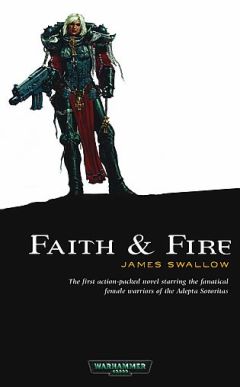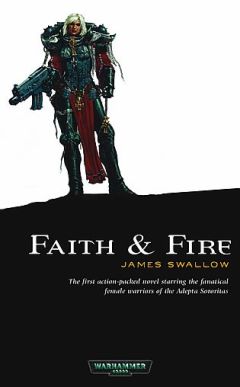Пользователь - WORLDS END
Robbie said that Clemenceau and Lloyd George were every bit as ignorant about economic questions; he wanted businessmen and financiers called in to advise. With one-third of Europe in revolution, and another third hanging on the brink; with tens of millions of people not knowing where to get their next day's bread; with trade disorganized, railways broken down, river transport sunk, harbors blockaded, and millions of men still kept out of production, liable to revolt and go home, or to start shooting one another - the man to whom they all looked for guidance had brought a shipload of specialists in geography and history and international law, and only a handful who knew finance, production, or trade.
VII
The telephone rang in Lanny's room, and he heard a voice, speaking English with a decided foreign accent: "Can you guess?" Someone in a playful mood; he kept on talking, and Lanny, who had heard so many kinds of accents in his young life, tried his best to think, but nothing stirred in his memory. "Five years ago," said the stranger. "On a railroad train." Lanny groped in his mind. "I got on at Genoa," said the voice; and suddenly a light dawned, and the youth cried: "Mr. Robin!"
"Johannes Robin, Maatschappij voor Electrische Specialiteiten, Rotterdam - at your service!" chuckled the voice.
"Well, well!" said Lanny. "What are you doing here?"
"A little business, which will be a secret until I see you."
"And how are the boys?"
"Fine, Lanny, fine - do I call you Lanny, even though you are grown up to a young gentleman?"
"You bet you do, Mr. Robin. I'll never forget the favors you have done me." In the course of the last four years Mr. Robin had mailed six or eight letters to Kurt in Germany, one of them only a week or two previously. That was how the trader knew that Lanny was in Paris, and his address.
Of course Lanny wanted to see that friend, even busy as he was with all the affairs of Europe. "I'm going to have lunch with my father," he said. "Wouldn't you like to join us?"
"Sure, I like to meet your father," said the dealer in electrical gadgets. Lanny told him where to come.
Johannes Robin was somewhat stouter than Lanny remembered him; he had spent money on his clothes and looked the picture of prosperity. He was the same exuberant fellow, who liked to talk about himself; but Lanny, more observant now, got the feeling that he was not entirely at ease. He wanted very much to please these two rich Americans, and was never quite sure whether he was doing it. His handsome dark eyes moved from Lanny's face to Robbie's and back again, and his smile was deprecating and hesitant, as if to say: "I hope you don't mind if I am so proud to know you."
He was genuinely glad to see the youth and exclaimed over how big he had got. Of course he wanted to tell about those two boys at home, and he had some more snapshots of his family group, which he presented apologetically - they wouldn't take up much room. They talked about Kurt Meissner; Lanny had had no answer to his last letter, and was worried about it. A captain of artillery could have been killed during the last days of the war just as well as at any other time. Robbie said that the Americans had been attacking just as hard between seven in the morning when the armistice was signed and eleven when it went into effect.
With Lanny's father Mr. Robin became the businessman, who had traveled over Europe and knew its affairs, and could tell interesting stories about money-making in wartime. From his safe retreat in the Low Countries he had made quite a lot, in spite of the British blockade; nothing to compare with Mr. Budd's affairs, he said modestly, but enough to constitute success for one who had been born in a ghetto hut with a mud floor. Robbie liked that attitude - he liked people to be what they were and not pretend to be something else; so he and the Jewish importer got along pleasantly. They agreed that business would pick up again, if only the diplomats would quit their stalling; they agreed on many things that ought to be done - and Lanny listened, picking up bits of information which he could take back to his chief, to atone for taking a couple of hours off in the middle of a busy day.
VIII
Before those two had finished their bottle of wine they knew each other well enough for Jascha Rabinowich, alias Robin, to make a confession. " Mr. Budd, I have some ideas in my head that just don't let me rest. You know the feeling perhaps: there is money to be made, so much money, and I see how it can be done at once, but later on it will be too late."
Yes, Robbie knew the feeling, and gave permission for his new acquaintance to tell him what he had in mind. It turned out to be the same thing that had been interfering with Robbie's sleep: all that mass of munitions and other supplies which had been manufactured at enormous cost, and which were now lying about - "Have you seen them, Mr. Budd?"
Robbie smiled. "My son sees them on the Place in front of his hotel." It was packed with rows of cannon of every type, howitzers, mortars, field-guns - captured German pieces with the marks of war on them, and now rusting in the rain.
"It is terrible, Mr. Budd, all those goods which cannot even be covered up: shells that they were ready to fire, boots they were going to wear. Now they do not know what to do with it all. To take things back to England - that is possible; but all the way to America - will it pay the cost of crating and shipping?"
"We have been figuring on it, and it won't," said Robbie Budd. "The army has a commission here, trying to dispose of the stuff."
"Well, Mr. Budd, I am a man who knows how to sell things. I know dealers all over Europe. And I have ideas. I wake up in the middle of the night, because one has stung me, like it might be - what is it? - abeille - "
"A bee," said Lanny.
"For example?" said Robbie.
"Well, hand grenades; there are millions of them - "
"We made a quarter of a million for our army."
"And now they are somewhere out in the mud of Lorraine. You know what they look like; I don't need to describe them."
"What would you do with them?"
"First I unload them. I have a mass of black powder, which I put up in bags. I know a man who supplies mining companies in Chile, Peru, all those countries. Then I cut off the handles; tomorrow I will find something to do with them. Then I have a little round metal box; it has a pretty shape, it sits up on end; I cut a slot in the top, and there you are."
"What is it?"
"It is a children's bank, where they drop their pennies, their pfennigs, their sous, their soldi - in every country they have little coins for the poor."
Robbie and his son couldn't keep from laughing. Such an odd idea: a hand grenade, the quintessence of destructiveness, made into a children's bank, the symbol of thrift. Swords into plowshares and spears into pruning hooks!
Mr. Robin laughed too, but only for a moment. "You don't know what a market it is, Mr. Budd. You don't know the homes of the poor, as I do."
"But they have no money now."
"They will get these small coins; and they will starve themselves and save - maybe to pay off a mortgage, maybe to buy a cow, or for a girl's dowry - such things as the peasants hope for. A bank is something sacred, it comes next to the crucifix; it teaches virtue, it is a witness and a reminder; the family that has it has something to live for. If there is peace, on next Christmas Day a million peasant women will give such banks to their children."
"Christmas is a long way off, Mr. Robin."
"You would not say that if you knew the novelty trade. Next summer we start to travel for our Christmas trade; and meantime I am finding the agents, I am sending them the samples and the circulars and the contracts; and all that I have to get ready. If I have a couple of hundred thousand banks that have cost me only a few cents each, I know I can sell them, and just where and how. And that is only one small deal, Mr. Budd. I will find a hundred bargains, and a use for each."
"Have you thought about storage costs?"
"In the old city where I live are hundreds of warehouses, and no longer will they be full of goods when ships can go directly into Germany. They are on the canals, and goods come by the rivers or the sea - there is cheap transport to every part of the world. ALL that is needed is cash to buy - and to do it quickly, before someone else snaps up the bargain. I am so certain of the profits that I am offering to go fifty-fifty with you; I will give all my time and experience, I will do the work, and pay you half the profits. We will form a company, and your name will be kept out of it - I know that you do not want your name in small business like this. It will be a quick thing - in a year it will be over, and I would not dare to tell you how many hundred percent we will clear, because then you would be sure that I must be a swindler."
IX
Lanny watched these two traders, smoking their cigars and knocking the ashes into the dregs of their coffee cups; he amused himself trying to guess what was going on in their minds. He himself kept silent, knowing that this wasn't his job. He personally would have been willing to trust the Jewish dealer, because he liked him. But Robbie didn't like Jews; his view was that of society people who don't want them in their fraternities or clubs. Robbie would sometimes make playful remarks based upon the assumption that Jews went into bankruptcy freely, and set fire to their warehouses and stores when the season became slack. "Fur stores burn in February" - all that sort of thing.
Would Mr. Robin be aware of that attitude? Lanny guessed that this shrewd fellow knew everything that concerned himself and his affairs; he would anticipate the attitude of fashionable gentiles listening to his business "spiel" and watching the play of his hands and shoulders.
"Look, Mr. Budd," said the dealer in gadgets. "I come to you a stranger, and perhaps I have nerve to talk money to you. But I have business connections, I have a reputation in my home city; my creditors and bankers will tell you. But more important yet is that you should know me as a man. If I may speak to you frankly, and from my heart, and not feel that I am boring you . . . ?"
"I have been interested in you ever since Lanny told me about you, Mr. Robin."
"Perhaps he told you that I come from a Polish ghetto, and that I have suffered poverty and worked bitterly hard, and paid for everything that I have gained. Now I have had some success, and if I am cautious I and my loved ones do not have to worry the rest of our lives. But I have brains and I like to use them. It is a game that we play, you and me, all of us; you know what I mean?"
"I know."
"It is a pleasure to rise in the world, to meet new people, educated people, those that have power. I know that I will always be a Jew, and carry the marks of the ghetto; I know that my accent is not right in any language, that I talk with my hands, and that I say things that are not in good taste, so I do not expect ever to shine in drawing rooms. But I expect that businessmen will recognize me, and that I will be able to do things that are worth while. And now through a chance I have met a big businessman - "
Robbie raised his hand. "Not so big, Mr. Robin!"
"I am telling you how it seems to me. You live in a world far above mine. Maybe you are not really better than me, but the world thinks you are, and I, with my ghetto memories, look up to you. I look at your son and I think: 'I would like my boys should be like him.' And if I persuade you to go into a deal with me, I have a chance to make good in a new way. If I cheat you, I will get some money quick, but then no more. You will say: 'The little kike!' - and that is the end. But if I make good, then I have your respect. You tell your friends: 'I don't care what you say about the Jews, I know one that's straight, I would trust him with the crown jewels' - or whatever it is that you value in America, the Statue of Liberty, shall we say?"
"I am touched by your confidence, Mr. Robin," smiled the American. "I will try to be worthy of your ideal."
"I will tell you something more, Mr. Budd - if I am not boring you?"
"Not at all."
"You have seen the little pictures of my two boys. How I love those boys is something I cannot tell any man. I would give my life if it would spare them unhappiness. Those boys were not born in a ghetto, and its marks are not on them. For them I imagine the finest things in the world. The little one, Freddi, is a quiet lad, and studious; he will be a professor, perhaps. But the other, Hansi, his choice is made; he lives for the violin. He will not be some obscure fellow in an orchestra; he has fire, he has temperament, and he works so hard, I know that he will be a virtuoso, a concert performer. You think, perhaps, it is a fond father's dream; and maybe so, but to me it is real."
"I understand," said Robbie, who also had a dream.
"Then one day I meet on the train a little American gentleman, and I talk with him. He is going to visit in a German castle; he has good manners, and what is more, he is kind; he plays the piano, he reads, he has traveled and met famous people, his talk is far beyond his years; it comes to me as incredible that a boy should know so much, and talk so like a man of the world. I go home and tell my boys about him, and how they wish they had been on that train and met that Lanny Budd! Then a year or two passes, and one day I get a letter, with a picture of himself and his mother in front of their home; my boys they pin it up on the wall, and all the time they are talking about that wonderful Lanny Budd. They write him little notes, and he answers, and they are saying: 'Some day we shall meet him!' They are saying: 'Do you think that he would like us, Papa? Do you think he would mind that we are Jews?' Perhaps you have never thought about how it is to be a Jew, Mr. Budd?".
"I am interested to understand," said Robbie, politely.
"If you are an orthodox Jew, you have your faith, your ancient laws and customs, and that is enough; you are not interested in anyone but Jews, because you know that the rest is accursed. But if it happens that you learn modern ideas, and decide that the Sabbath is a day like any other day, and that ham will not hurt you if it is well cooked, and that it is all rubbish that you should not eat meat and butter from the same dish - then you are done with the old religion and you are looking for something else to take its place. You wish to live in the world like other people; to be a man among men. If somebody says: 'I do not want you in my home because you are ignorant, and stupid, and you bore me' - that is all right, that may be true, and you cannot complain. But if someone says: 'I do not want you in my home because you are a Jew' - that is not fair, and that hurts. But of course every Jew hears it, and a Polish Jew most of all, because that is supposed to be a very low kind. Every Jew wishes to meet gentiles, and to live among gentiles, but no Jew is ever quite happy, or quite sure; every Jew is thinking: 'Is there something wrong here?' or perhaps: 'Have I done something I shouldn't?' But he cannot ask, because that is not done; and when I say this to you, I have to think if it will displease you."
"Not at all," said Robbie. It was a concession on his part.
"So little Hansi is thinking: 'I will play the violin better and better, and then some day, when I meet the wonderful Lanny Budd, he will wish to play duets with me. He will really judge my music, and not as the rich boys do at school, my Jewishness.' That is what my Hansi has said to me; and now, should I smash his dream that the wonderful Lanny Budd might wish to play music with him? Shall I have to hear him say: 'No, Papa, I cannot have Lanny Budd for a friend, because his father says that you are not honest in business, that you took advantage of him when he trusted you'? So you see, Mr. Budd, I should have to go straight, even if it was against my nature."
![Rick Page - Make Winning a Habit [с таблицами]](/uploads/posts/books/no-image.jpg)



